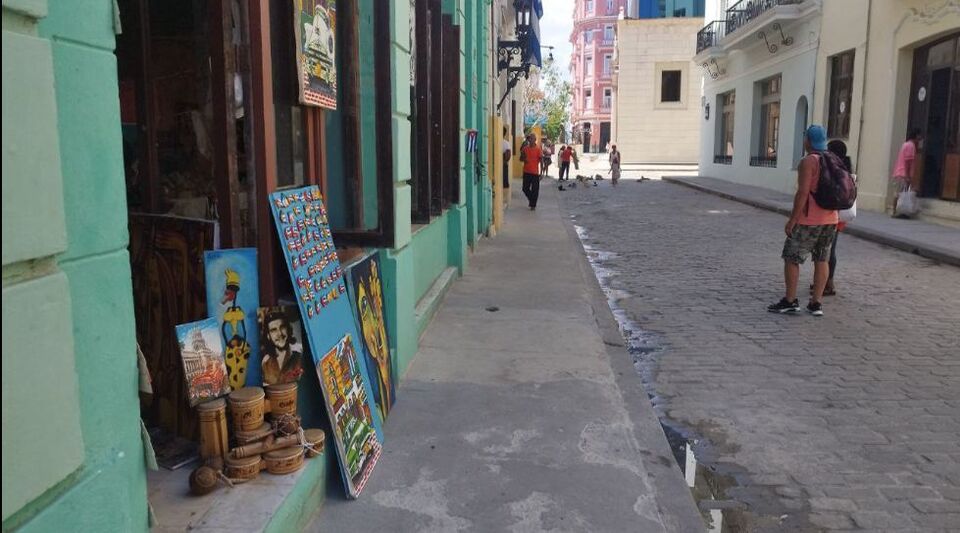The Cuban Minister of Tourism, Juan Carlos García Granda, reported Parliament this Wednesday that the island received 1,298,539 travelers in the first half of this year. Despite the frantic international campaign to present Cuba as an attractive destination, the figure represents a recovery of only 50% compared to 2019.
With 500,000 visitors, Canada continues to lead the way in the list of issuers of tourists to the island, followed by Cubans residing abroad, US citizens and finally travelers from Russia, whose approach to Cuba has not achieved the explosion of Russian tourism that Havana expected.
The minister does not lose hope with Russia, which must “position itself in the coming months” as the third issuing country after the reactivation of direct flights between Havana and Moscow.
The repair of out-of-order rooms has not gone well either – some 5,528 reported throughout the country -: only 1,397 have been fixed, which represents compliance with barely 25% of the annual plan and 43% of the accumulated restoration plan.
The repair of out-of-order rooms has not gone well either – some 5,528 reported throughout the country: only 1,397 have been fixed
García Granda considered 79% of the tourist arrival plan for 2023 fulfilled, and 98% of what he expected in terms of tourists per day. Without offering details or arguments, he added that he considered that he had achieved an outstanding level in the export of services, with 99.9% of the plan.
To explain the mediocre performance of the sector, García Granda used the usual justifications: the “negative impact” of the coronavirus pandemic on the hotel sector -of which he did not give details- and the blocking US. He also spoke of the “Russian-Ukrainian conflict,” which he lamented affected travel to Cuba. In short, the Island is experiencing a timid continuity of what the official called the “recovery line” of international tourism.
The minister was pleased that Cuba emerged successfully from the “digital transformation”: from now on, he specified, there is a “total deployment” of internet coverage in hotels, after the start-up of 286 service facilities.
The Ministry of Tourism does not decide to have more micro, medium and small companies ( MSMEs) because, García Granda explained, there is no “financial availability” to hire them, nor is there raw material that arrives on the island in time to offer them to businessmen.
During the speech, the minister did not stop lamenting the “smear campaigns” of the independent press so that tourists do not go to Cuba and described a whole spectrum of “actions”, both in social networks and in the migratory field, which have a negative impact on the sector. This is the case, he argued, of “the cancellation of trips to the United States without a visa for European citizens who have visited the Greater Antilles.”
The Ministry of Tourism is not decided to have more with the ‘mipymes’ because, explained García Granda, there is no “financial availability”
The Cuban authorities have launched numerous projects to try to revive tourism this summer. In addition to the signing of agreements and the achievement of facilities with its allies in the Kremlin, Havana invited at least 25 influencers on July 8 to promote the Island on their social networks. This operation, which sought to reach a total of 120 million followers, was organized by the Spanish tour operator Enjoy Travel Group and several hotel companies that have establishments on the Island.
The young people arrived on the Island in business class seats, through a flight organized by Cubana de Aviación and the Spanish airline Plus Ultra. Since their arrival, they were bombarded with all sorts of events, including cooking classes, salsa dancing, trips on tourist almendrones through the best areas of Havana, catamaran cruises in Varadero and lobster lunches “seven days a week.”
The other major tourism revitalization project is the Santa Maria Music Festival, a luxury event that will bring together several international artists in the North Keys of Cuba. Although several guests who originally appeared on the promotional poster denied any link to the festival, other artists – such as the controversial rapper Tekashi 6ix9ine, implicated in organizing the event – have already confirmed their presence at an event that repeats the strategy and, of course, the fiascos, of the San Remo Festival, sponsored by the regime in 2022.
________________________
Collaborate with our work:
The team of 14ymedio He is committed to doing serious journalism that reflects the reality of deep Cuba. Thank you for accompanying us on this long road. We invite you to continue supporting us, but this time becoming a member of our newspaper. Together we can continue transforming journalism in Cuba.







